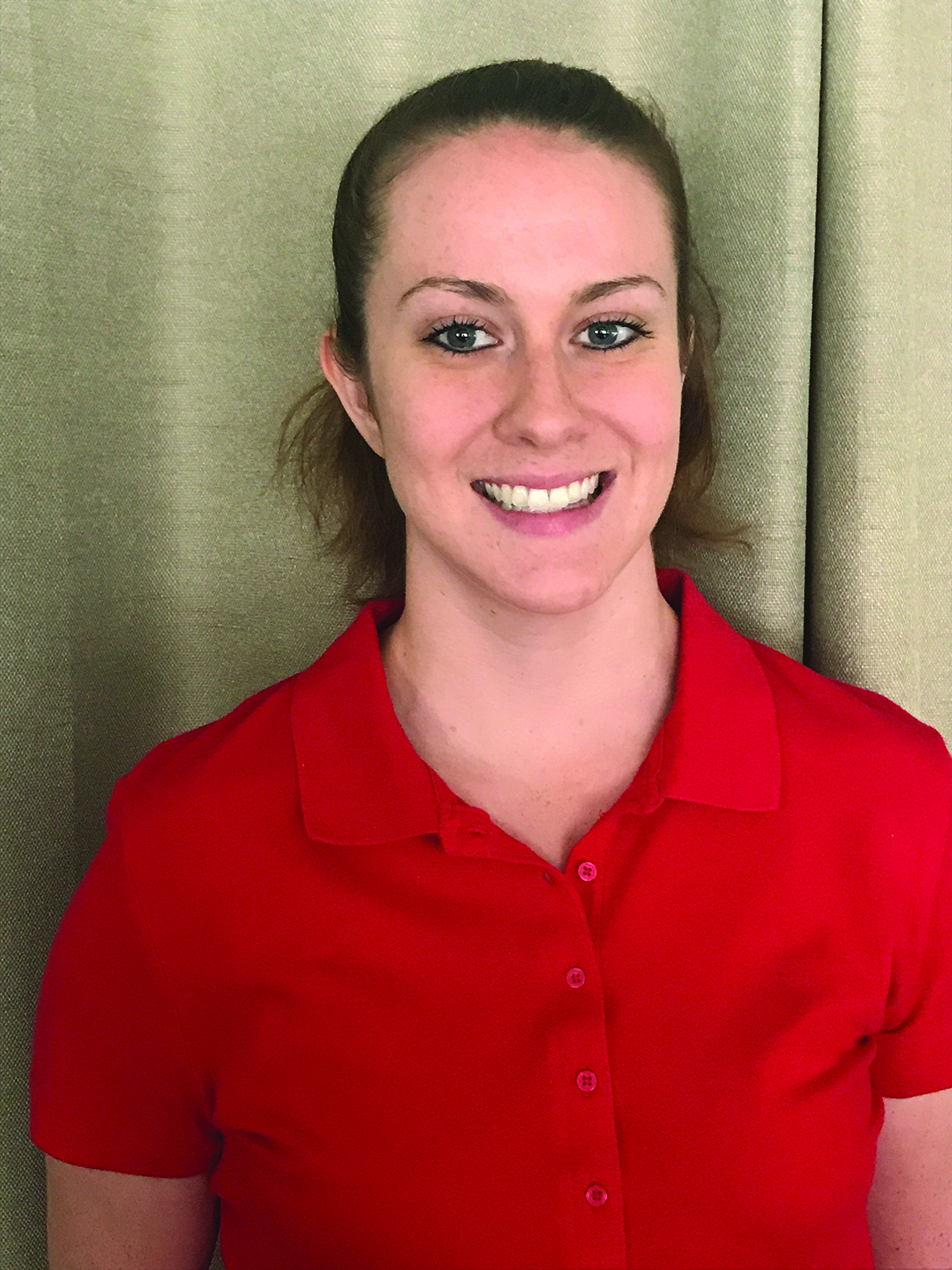Lindsay Twohig and Natick High look like a great partnership.
Twohig became the Redhawks’ athletic trainer last spring and she’s hoping her time at Natick will be long-term. The Weymouth native replaces Aimee Mendoza, who now is Ashland High’s trainer.
“I enjoyed working the spring season and would like to be at Natick High for a long stretch,’’ Twohig said. “There’s a strong sense of community, and I quickly discovered how welcoming the atmosphere is. Parents I’ve dealt with are friendly and respectful. They’re aware that any decisions I make are a plus for their kids.’’
The 27-year-old Twohig attended South Shore Christian Academy in Weymouth where she played four varsity seasons of soccer. A center midfielder, she was a two-time captain. After graduating in 2008, she enrolled at Simmons College, majoring in exercise science. Graduating in 2012, she worked on a masters in athletic training the next two years at Bridgewater State.
The personable Twohig first worked as a rehab aide at a physical therapy clinic and also spent time on a per-diem basis working at Weymouth High and at the Reggie Lewis Center. Later hired by Metrowest Medical Center, she’s now Natick High’s full-time trainer.
Athletic Director Tim Collins quickly discovered during the spring season that Twohig is not only capable, but also very dedicated. “Capable and dedicated are words that easily describe Lindsay,’’ Collins said. “A trainer’s job can be trying because they’ve got to be in many places in a minimal amount of time. She’s got a great knowledge of athletic care.’’
Twohig is acutely aware of her mission and her philosophy is well-defined.
“The No. 1 priority is the health and safety of all our student-athletes,’’ she emphasized. “I’ll wear many hats. I may be a first-responder when a player is injured, I may be formulating exercise therapy, stressing injury prevention, or working with students on rehab. When working with coaches, I’ll send out emails at the start of a season and let them know about my philosophy and injury protocol. They’ll all have my cell number and I encourage calls if they have any questions.’’
A typical day for Twohig begins at about 2 p.m. when she begins her routine in the training room. She’ll meet with student-athletes in need of her advice or input, then head to games or practices at the school.
“If there are no games scheduled at Natick on a given day, then I spend time at football practice,’’ Twohig said. “I’m always on site for games, but if I’m needed at a team’s practice, I’ll use a golf cart to arrive quickly. I’m on site until the last practice, or last game, ends.’’
Dealing with injuries at similar times in multiple places can be difficult and stressful. Twohig, however, has worked to sharpen her time-management skills. “I’m a work in progress with time management,’’ she said. “I try to manage time effectively. Being in multiple places in short time spans is difficult. But, the focus has to be on the task at hand. I have to deal with the athlete in front of me.’’
Twohig is the person in charge when a football player is injured. She’ll decide if an ambulance is needed, and usually she’ll have an assistant coach make the 911 call. She’ll also inform parents to stay at a distance until an assessment is made.
“Parents will travel with their child if hospitalization is warranted,’’ she said. “And, if parents are not at a game, I’ll call and fill them in on their child’s status. If no parent is on hand, a coach has to accompany an injured player to the hospital.’’
Twohig says the most common injury she deals with are ankle sprains. “Ankle sprains are the most prevalent injury we treat,’’ she said. “Concussions occur and have been in the news, but we’re more aware of them and have more tools to deal with them. Symptoms now can be detected more easily.’’
When student-athletes undergo physical therapy, they’re required to update Twohig on their status on a daily basis. “A doctor’s note is always required before an athlete can return to practice or games,’’ Twohig said. “And, I stay up to date with an athlete’s rehab program.’’
Twohig doesn’t get involved in paperwork for required physicals. When an athlete registers on line to play a sport, a physical is needed. “A physical is good for 13 months,’’ Twohig noted. “Kathy Larkin (athletic department assistant) deals with all the paperwork involving physicals.’’
Twohig is impressed with the coaches at Natick and Collins, who’s now in his eighth year as A.D. “Tim has been so welcoming since day one,’’ Twohig said. “He’s helpful, easy to talk with ,and very positive.’’
Twohig is passionate about her role at Natick because, as she says: “Every day is different.’’
“Different things happen, there are different sports and different people involved,’’ she said. “I also enjoy getting to know the kids. I enjoy listening to their routines and getting to know them as people, not just athletes.’’
Lindsay Twohig is fitting in admirably as Natick’s athletic trainer.

Issue Date:
October, 2017
Article Body:
Column:
